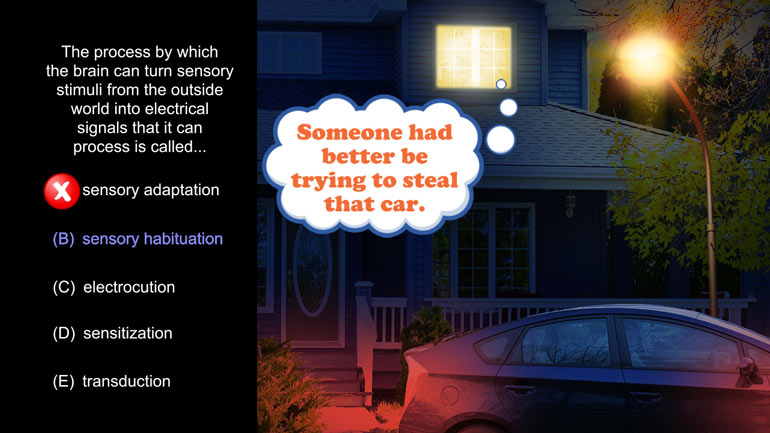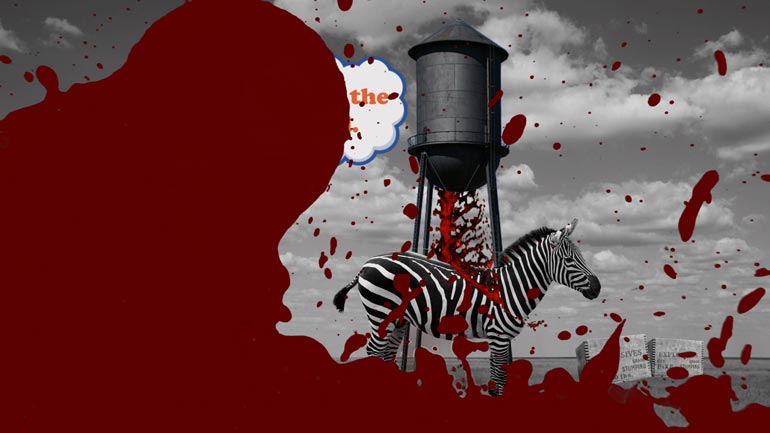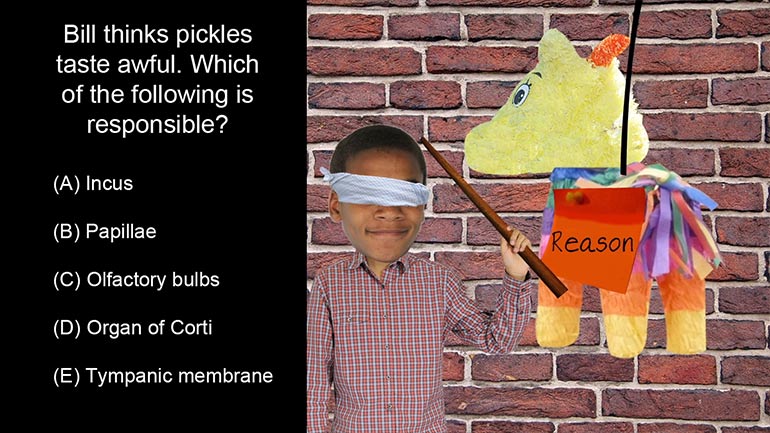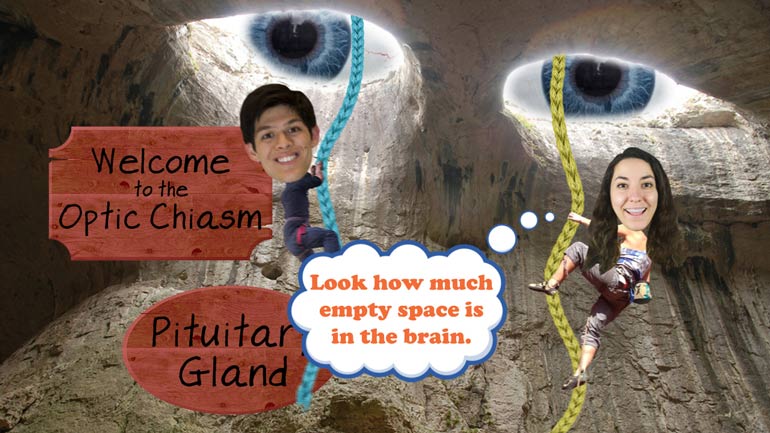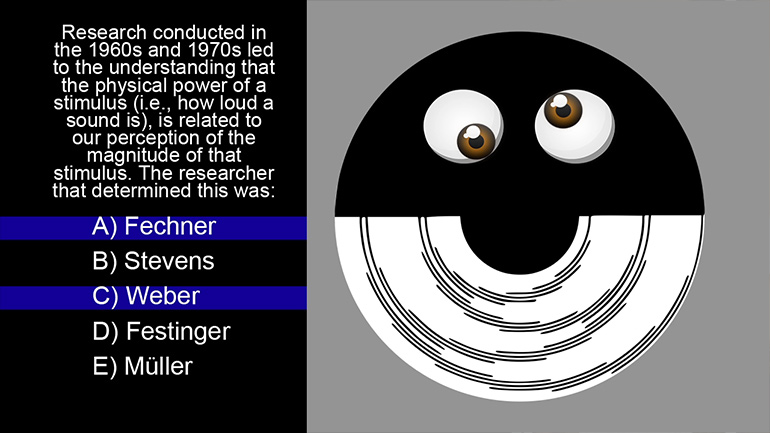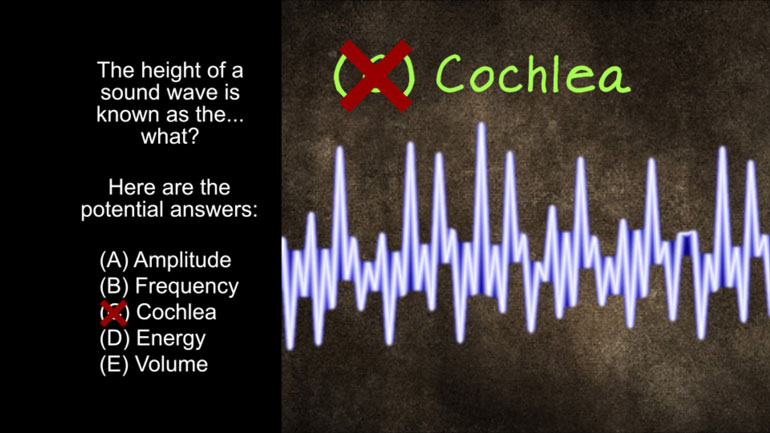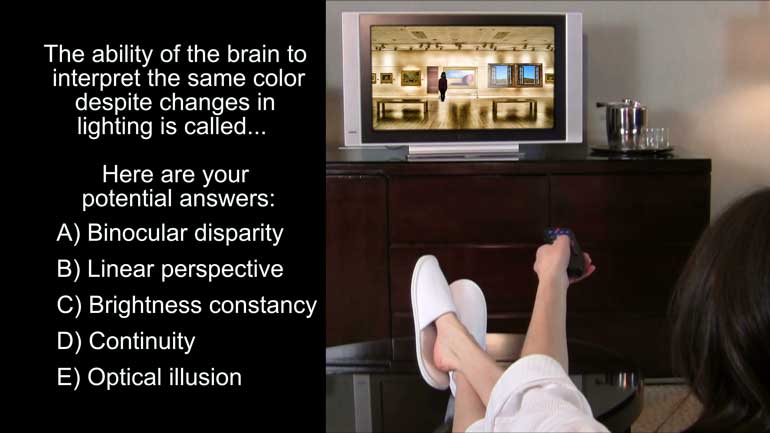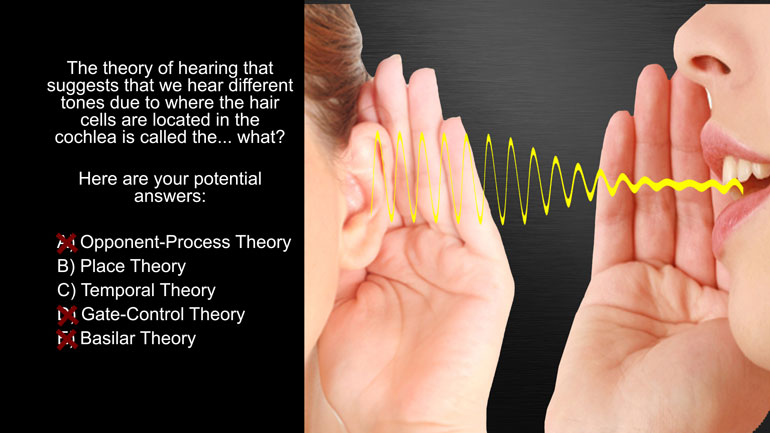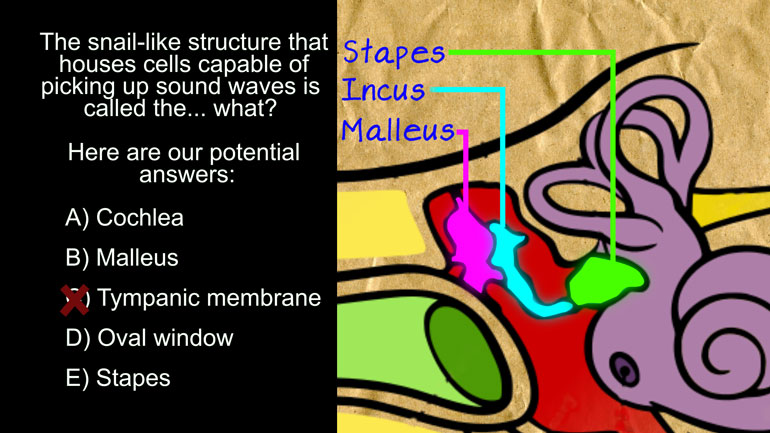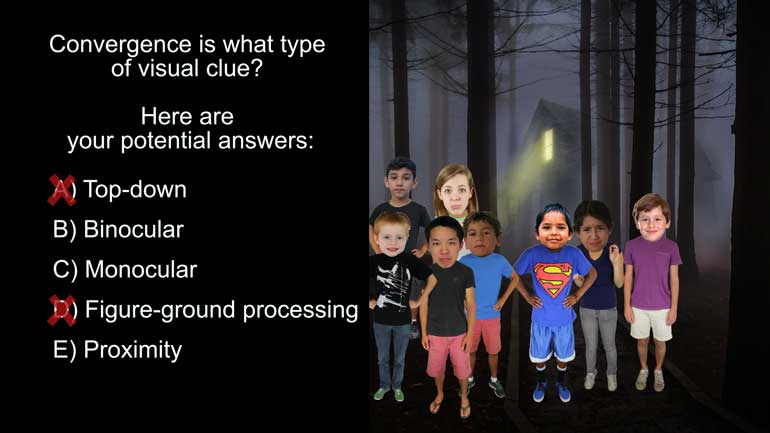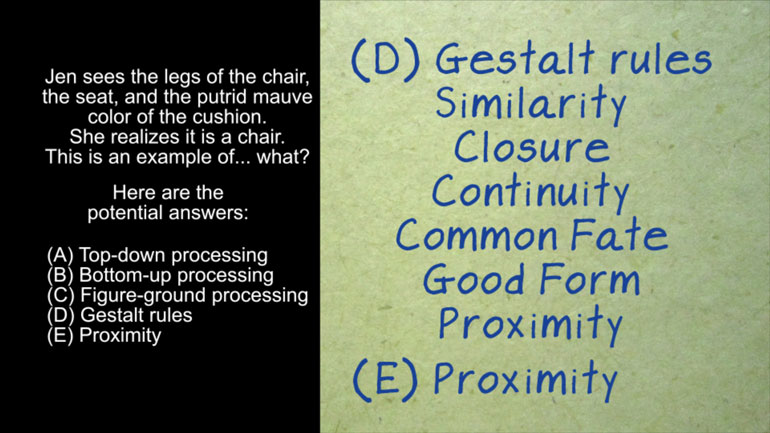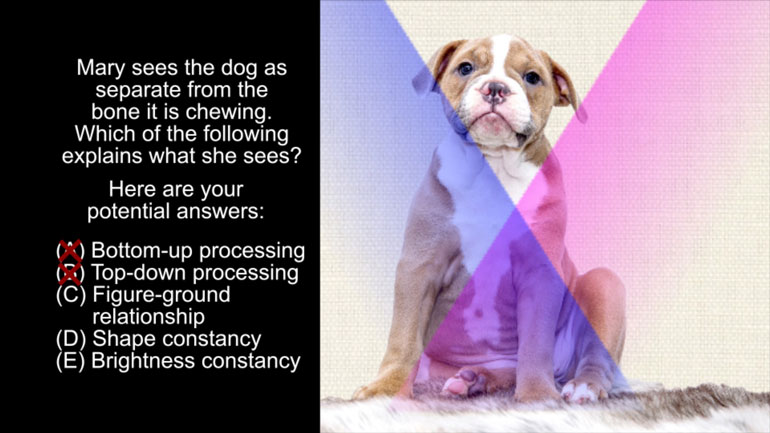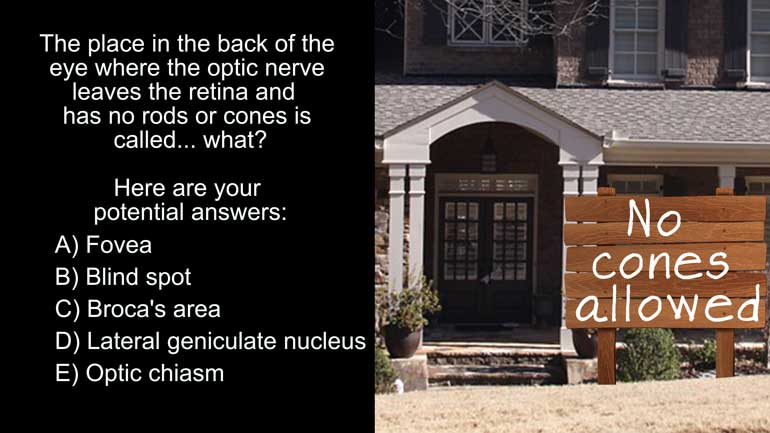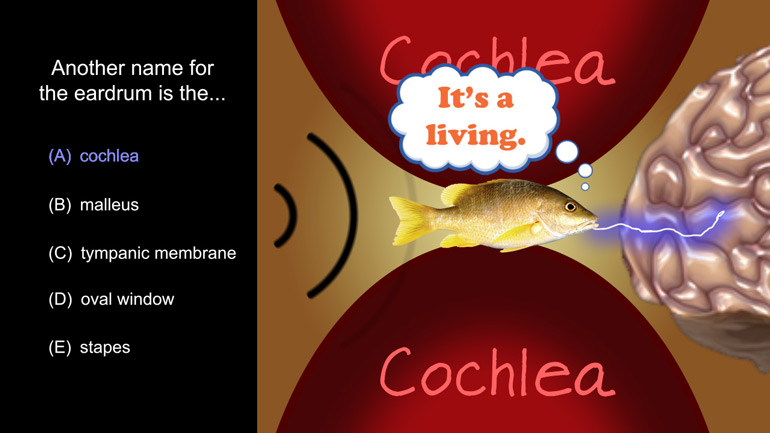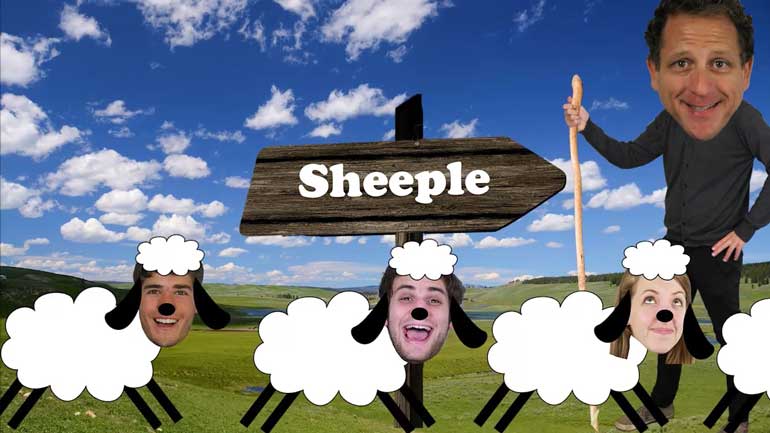ShmoopTube
Where Monty Python meets your 10th grade teacher.
Search Thousands of Shmoop Videos
Sensation and Perception Videos 15 videos
AP Psychology 1.1 Sensation and Perception. The process by which the brain can turn sensory stimuli from the outside world into electrical signals...
AP Psychology 1.2 Sensation and Perception. The cells in the back of the eye that only see in black and white are called what?
AP Psychology 2.3 Sensation and Perception. Bill thinks pickles taste awful. Which of the following is responsible?
AP Psychology 3.5 Sensation and Perception 4 Views
Share It!
Description:
AP Psychology 3.5 Sensation and Perception. Which of the following explains what Mary sees?
Transcript
- 00:04
And here's your shmoop du jour brought to you by dogs they make
- 00:07
life a little less rough. we know that joke tickled your funny bone [woman playing with a dog]
- 00:11
here's the question..Mary sees the dog as separate from the bone it is chewing
- 00:15
which of the following explains what she sees and here are your potential answers....
- 00:20
Our brains are pretty cool think about it they help us [People at a beach with brains for heads]
Full Transcript
- 00:27
interpret and understand all the visual stimuli in the world quickly and
- 00:30
accurately so instead of being visually overwhelmed all the time we can focus on
- 00:34
the more important things in life like a test prep, see what we did there alright let's [Girl preparing for a test]
- 00:39
get started could Mary's brain be engaging in A) bottom-up processing well
- 00:44
bottom-up processing describes our ability to pick up various features of
- 00:47
stimuli and put them together to make sense of them we see fur, four legs
- 00:51
floppy ears and voila we know that what we're looking at is a sweet little pup [puppy in the street]
- 00:55
but if we happen to have seen a lost werewolf poster in the area recently
- 01:00
well then maybe we'd perceive this innocent and playful dog as a dangerous [puppy transforms into a beast]
- 01:05
beast this would be top-down processing which describes when we take our
- 01:09
knowledge and expectations to help interpret our sensory stimuli neither of
- 01:13
these however have to do with distinguishing the dog from her bone so
- 01:16
we can cross out A) and B) what about D) shape constancy well this concept
- 01:21
refers to our ability to perceive the shape of a given object as constant [shape constancy definition]
- 01:26
despite our view angle changing so if we look at the dog from this angle and then [Woman looking at a dog]
- 01:32
this angle our brain knows that the shape hasn't changed but that our
- 01:36
perspective or angle has, it's a way of contextualizing the object and our
- 01:41
perceptions in order to make sense of our surroundings similarly if we were to [Dog sitting down]
- 01:45
view the dog in this light and then this light our mind understands that the
- 01:50
object itself isn't becoming more or less bright but instead that the light [Dog surrounded by colorful lighting]
- 01:55
around it is changing well both of these constancy's allow us to make sense of
- 01:59
the world in a simple way or otherwise the constant growing and shrinking and [Magician makes woman grow and shrink]
- 02:03
color changing would make us wonder if we fell down a rabbit hole but neither are
- 02:08
our answers that must mean that Mary's perception can be described by [Mary thinking]
- 02:13
C) figure ground relationship when discussing the ability to discern
- 02:17
between objects we're talking about figure ground relationship first [Dog chewing a toy]
- 02:21
explained by Gestalt psychologists it describes how we automatically perceive
- 02:26
an object as a separate entity from its surroundings the figure cute little pup
- 02:30
here is the center of our attention so we're able to perceive it as separate [Puppy dog carrying a bone in its mouth]
- 02:35
from the background and in turn the bone so C) is the correct answer that was
- 02:39
the best test prep video ever right right come on now throw a dog a bone
- 02:44
here... [Girl holding a test prep book]
Related Videos
AP Psychology 1.1 Sensation and Perception. The process by which the brain can turn sensory stimuli from the outside world into electrical signals...
AP Psychology 2.2 Social Psychology. Which of the following was an independent variable manipulated in Asch's research?
AP Psychology 1.1 Personality. According to Freud, these three parts of personality are constantly in conflict.
AP Psychology 1.1 Social Psychology. Which of the following best describes social psychology?
AP Psychology 1.1 States of Consciousness. Who conducted research on REM sleep deprivations?
